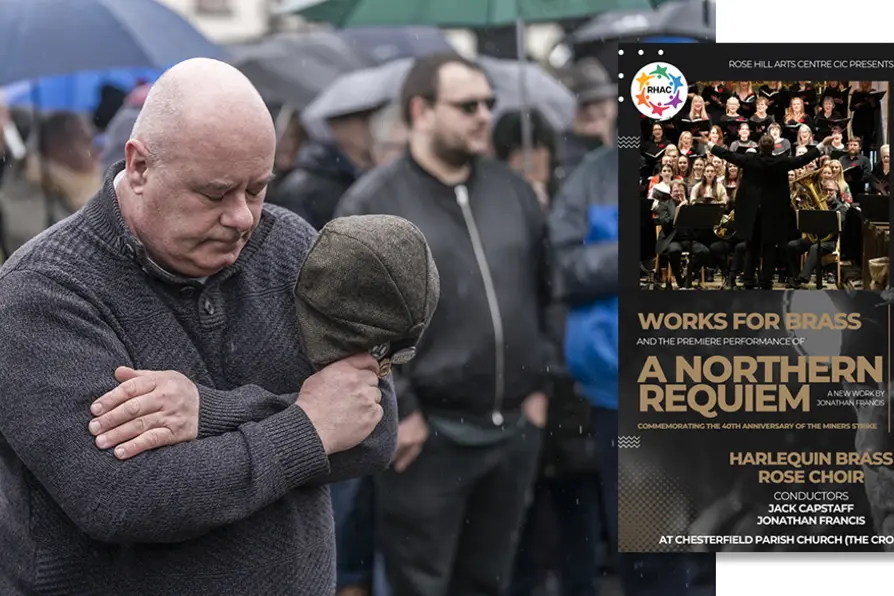MARIA DUARTE recommends an extraordinary film that explores an absent father’s attempt to make up to his sons
Moving new requiem to honour the miners
SHIRLEY CLARK is moved by a dignified and defiant new work, written to commemorate the strike in 84-85

 DIGNITY: A man after laying a wreath, at a memorial dedicated to miners who lost their lives while working in collieries, during the Miner's strike 40th anniversary rally in Dodworth, Barnsley, March 2, 2024.
DIGNITY: A man after laying a wreath, at a memorial dedicated to miners who lost their lives while working in collieries, during the Miner's strike 40th anniversary rally in Dodworth, Barnsley, March 2, 2024.
“HERE we go, here we go for the women of the working class!”
Chesterfield Parish Church — The Crooked Spire — rang out with this anthem from the ’84-85 Miners Strike on the evening of Saturday October 12.
The occasion was the inaugural performance of A Northern Requiem, written by local teacher and musician Jonathan Francis. Over 300 people were in the audience. Francis wrote it to commemorate the strike and the communities “who were left to fend for themselves when everything they knew had collapsed.”
Similar stories

MIKE QUILLE applauds an excellent example of cultural democracy: making artworks which are a relevant, integral part of working-class lives

In the last of four extracts from her new memoir, former NUM headquarters staffer HILARY CAVE recalls the 1985 campaign in the Nottinghamshire coalfield against the breakaway unions who went on to sabotage the great strike

In the third extract from her new memoir, former NUM headquarters staffer HILARY CAVE recounts how women throughout the striking coalfields showed their mettle when the going got tough

PETER LAZENBY is fascinated by a book of cartoons that shows how newspaper cartoonists were employed to, on the one hand, denigrade and, on the other, to defend the miners’ strike of 1984-85










